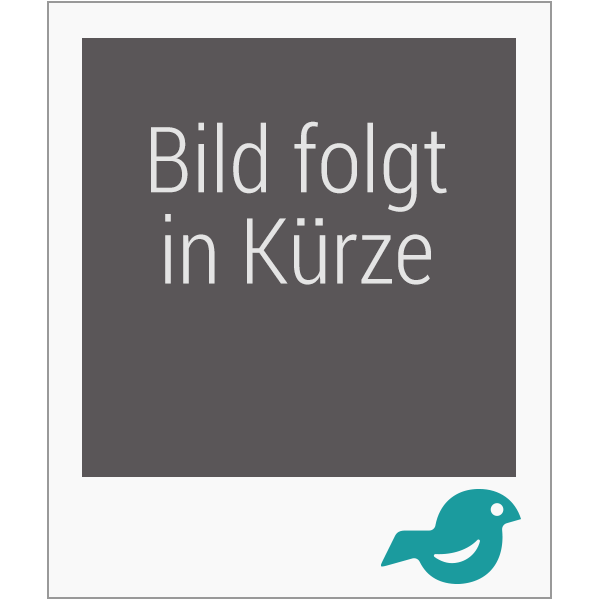Nicht lieferbar

From Logic to Rhetoric
Translated from the French original edition, Paris, 1982
Versandkostenfrei!
Nicht lieferbar
Table of contents:- Introduction- Part One: Logic and Language- 1. Frege or the Recourse to Formalization- 1.1. Logic before Frege- 1.2. Function and concept- 1.3. The ideography and the principles of Fregean language theory- 1.4. Sense and reference- 1.5. Sense and meaning- 1.6. Conclusion- 2. Russell's Synthesis- 2.1. Formalization and natural language- 2.2. Definite descriptions- 2.3. Propositional functions- 2.4. The theory of types- 2.5. Conclusion- 3. Wittgenstein- 3.1. The Russellian heritage and its contradictions- 3.2. The immanence of logic in language- 3.3. Sense and reference- 3.4....
Table of contents:
- Introduction
- Part One: Logic and Language
- 1. Frege or the Recourse to Formalization
- 1.1. Logic before Frege
- 1.2. Function and concept
- 1.3. The ideography and the principles of Fregean language theory
- 1.4. Sense and reference
- 1.5. Sense and meaning
- 1.6. Conclusion
- 2. Russell's Synthesis
- 2.1. Formalization and natural language
- 2.2. Definite descriptions
- 2.3. Propositional functions
- 2.4. The theory of types
- 2.5. Conclusion
- 3. Wittgenstein
- 3.1. The Russellian heritage and its contradictions
- 3.2. The immanence of logic in language
- 3.3. Sense and reference
- 3.4. The language image (the picture theory of language)
- 3.5. Negation and the other logical constants
- 3.6. The Tractatus as initiation into silence
- 3.7. Ordinary language and its rules
- 3.8. Conclusion
- 4. Hintikka or the Theory of Possible Worlds
- 4.1. Introduction
- 4.2. Referential opacity
- 4.3. Ontological commitment and the elimination of single terms with Quine
- 4.4. Possible worlds and propositional attitudes
- 4.5. The implications of the alternativeness relation and the theory of modus
- 4.6. The ontological commitment
- 4.7. The interpretation of quantification as a question and answer game
- 4.8. Wittgenstein and Hintikka
- Part Two: Language and Context
- 5. Syntax, Semantics, Pragmatics and Argumentation
- 5.1. The three levels of language
- 5.2. Logical syntax
- 5.3. Formalization and natural language
- 5.4. The renewal of argumentation
- 5.5. Perelman's new rhetoric
- 5.6. Argumentation in language or the 6;new linguistics' of Anscombre and Ducrot
- 5.7. Conclusion
- 6. Dialectic and Questioning
- 6.1. Dialectic and Socrates
- 6.2. The middle dialogues
- 6.3. The late period
- 7. Argumentation in the Light of a Theory of Questioning
- 7.1. Why language?
- 7.2. The two major categories of forms
- 7.3. What is to be understood by 6;question' and 6;problem'?
- 7.4. The autonomization of the spoken and the written
- 7.5. The proposition as proposition of an answer
- 7.6. What is meaning?
- 7.7. Meaning as the locus of dialectic
- 7.8. Argumentation
- 7.9. Literal and figurative meaning
- Footnotes
- References
- Introduction
- Part One: Logic and Language
- 1. Frege or the Recourse to Formalization
- 1.1. Logic before Frege
- 1.2. Function and concept
- 1.3. The ideography and the principles of Fregean language theory
- 1.4. Sense and reference
- 1.5. Sense and meaning
- 1.6. Conclusion
- 2. Russell's Synthesis
- 2.1. Formalization and natural language
- 2.2. Definite descriptions
- 2.3. Propositional functions
- 2.4. The theory of types
- 2.5. Conclusion
- 3. Wittgenstein
- 3.1. The Russellian heritage and its contradictions
- 3.2. The immanence of logic in language
- 3.3. Sense and reference
- 3.4. The language image (the picture theory of language)
- 3.5. Negation and the other logical constants
- 3.6. The Tractatus as initiation into silence
- 3.7. Ordinary language and its rules
- 3.8. Conclusion
- 4. Hintikka or the Theory of Possible Worlds
- 4.1. Introduction
- 4.2. Referential opacity
- 4.3. Ontological commitment and the elimination of single terms with Quine
- 4.4. Possible worlds and propositional attitudes
- 4.5. The implications of the alternativeness relation and the theory of modus
- 4.6. The ontological commitment
- 4.7. The interpretation of quantification as a question and answer game
- 4.8. Wittgenstein and Hintikka
- Part Two: Language and Context
- 5. Syntax, Semantics, Pragmatics and Argumentation
- 5.1. The three levels of language
- 5.2. Logical syntax
- 5.3. Formalization and natural language
- 5.4. The renewal of argumentation
- 5.5. Perelman's new rhetoric
- 5.6. Argumentation in language or the 6;new linguistics' of Anscombre and Ducrot
- 5.7. Conclusion
- 6. Dialectic and Questioning
- 6.1. Dialectic and Socrates
- 6.2. The middle dialogues
- 6.3. The late period
- 7. Argumentation in the Light of a Theory of Questioning
- 7.1. Why language?
- 7.2. The two major categories of forms
- 7.3. What is to be understood by 6;question' and 6;problem'?
- 7.4. The autonomization of the spoken and the written
- 7.5. The proposition as proposition of an answer
- 7.6. What is meaning?
- 7.7. Meaning as the locus of dialectic
- 7.8. Argumentation
- 7.9. Literal and figurative meaning
- Footnotes
- References




